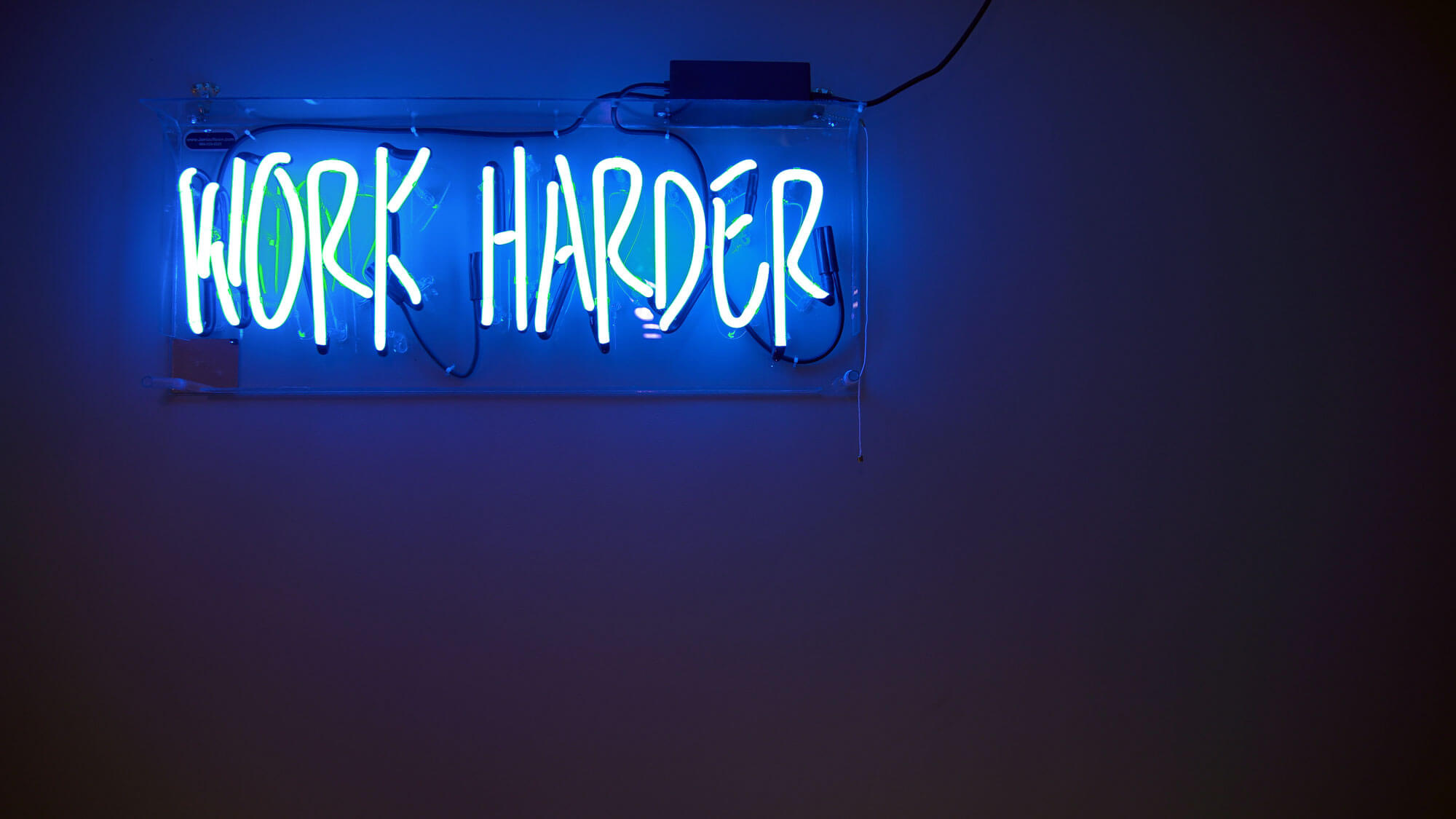Innovation isn’t supposed to be fun
Gary Pisano, a Harvard Business School Professor, wrote an excellent article in HBR last year on the hard realities of what innovative company cultures actually look like, which I highly recommend every aspiring innovator to read.
The bottom line? The inspiring and comfortable attributes, such as freedom, low hierarchy, and tolerance for failure that are associated with innovative company cultures are universally appreciated, accepted, and adopted. Yet, no one likes to talk about the flip side of the same coin.
Just as important as the aforementioned, if not even more so, are characteristics such as no tolerance for incompetence, as well as extremely high levels of discipline and personal accountability.
“Innovative company cultures are not all fun and games”
– Gary Pisano
Truly innovative companies have cultures that manage to strike productive balances that harness these opposing forces.

The same kind of cognitive dissonance is also extremely common when it comes to the work of actually making innovation happen.
We seem to easily ignore or downplay the uncomfortable aspects related to innovation, only to be later surprised when they hit us in the face. This is a key obstacle hindering both organizations and individuals, so we’d like to point out a few of the most common such aspects here.
1. It’s not about being “creative”, but actually “creating”
When organizations start to look for more innovation, we usually start with all kinds of creative endeavors, such as ideation workshops, hackathons, and idea challenges.
Typically, people really enjoy these sessions and feel inspired by them. It’s also quite likely that some good ideas that the organization could really benefit from will come up.
However, that is unfortunately where it often ends. There are usually a number of practical reasons for that unfortunate result, such as limited time or resources for progressing the ideas.
Yet, there’s often another, even more fundamental, reason in addition to the aforementioned: lack of skills.
Making innovation happen typically requires a diverse set of multidisciplinary skills ranging from the soft, such as empathy and design, to some of the harder ones such as sales and engineering.

The exact set of skills obviously depends on the innovation in question, but the key is having all of them within the core team, and in the correct proportion to what you’re trying to achieve.
There’s an endless number of people who consider themselves as “creative”, meaning that they’re capable of coming up with ideas, but far fewer who can actually “create” and make those ideas happen.
It’s important to realize that unless they get properly executed, ideas are worthless.
An idea is just a starting point. What’s more, whenever you come up with an idea, there have usually been hundreds or thousands of people with the same exact idea. They’ve just done nothing about it – or have failed and eventually quit.
As a rule of thumb, most creators are also creative, but the reverse simply isn't true.
So, make sure your team consists of “creators”, not “creatives”.
2. It’s psychologically incredibly tough
Innovator’s fail far more often than they succeed.
Even the ones who eventually do succeed have failed numerous times in the process.
Probably the most famous example of this is the thousands of attempts it apparently took Edison to get the lightbulb right.

Your work will often be criticized from many directions, and usually for good reason. With very few exceptions, it always takes multiple iterations for anything new to become great. To get there, you’ll have to learn to absorb all of that negative feedback, be motivated by it, and learn from it.
You also need to be brutally honest with yourself about the quality of your work. Set the bar higher for yourself than anyone else would, and you’ll be much better equipped to deal with the challenges you’ll inevitably face.
As mentioned, the most innovative companies never accept incompetence or substandard work, which can obviously make these organizations quite demanding places to work at.
Still, even while being completely aware of the brutally challenging realities, you need to keep believing in yourself, and your work, without becoming delusional.
The prolonged periods of high stress, constant failure and a steady stream of critique on a daily basis is certainly something most people aren’t ready or well-equipped for. Innovators need to be mentally tough to make it through these inevitable hardships.
3. It’s often not very glamorous work
Innovations don’t just happen. As mentioned, there’s always plenty of hard work involved.
What’s more, most of that work isn’t likely to be the cool creative stuff that people think about when it comes to innovation: the ideation, the planning, the design, or even creating the first version of something new.
These are obviously all essential to get right, but most of the time you'll spend working on the innovation will actually be spent on much more mundane things.

Fixing defects and issues just to get the innovation to work, trying to convince others to use, buy, or fund it, dealing with complaints and learning from them, optimizing the innovation to make it as effective and efficient as possible, as well as managing the expectations of the stakeholders involved are all fundamentally important in turning an idea into an actual innovation.
What’s more, innovation teams, be they startups or internal teams within larger organizations, almost always have too many ideas and things to do – and too few people to do them with.
Innovators thus need to be prepared to take care of the proverbial dirty work in addition to all of the glamorous and fun stuff.
4. It takes time
What makes the previous three worse is the fact that innovation doesn’t happen overnight.
It’s always a process that takes years. Just look at any of the companies that have redefined their respective industries. Even the companies that are typically labelled as overnight successes, such as Facebook and Google, are in reality anything but.
For example, it took almost three years before the public was even allowed to join Facebook and more than eight years for the company to IPO and surpass the 1 billion user mark. Their growth has without a doubt been remarkably fast from the very beginning, but it still isn’t exactly an overnight success.
So, no matter whether you’re an entrepreneur or an intrapreneur, you should be prepared to “do the time”.

What’s more, you’re also often in a race with either the clock, the competition, or both, which means that you need to find a way to put in as much effective work as possible to maximize your output, but in a fashion that you can sustain and keep doing for years on end.
While corporate innovators often have a number of disadvantages, they also have certain key advantages, the most important of which is the way the size of an existing organization can dramatically speed up the time it takes an innovation to reach scale – if used properly.
The downside is that you first have to get to a position where those networks and resources are made available for you to leverage, which isn’t always straightforward in a large organization.
Still, even in large organizations, if you’re not prepared for a prolonged journey, or are doing it for the wrong reasons like getting rich quickly, you will almost inevitably give up long before you succeed.
Conclusion
What’s the common theme?
An innovation isn’t the same as an idea or an invention. By definition, an invention only becomes an innovation once it has (hopefully positive) impact, and achieving that impact always takes quite a bit of time and hard work.
The beginning is always fun. The end result is often fun, but the journey between the two, the actual work of innovating, is rarely predominantly "fun". And it isn’t supposed to be.
The beginning is always fun. The end result is often fun, but the journey between the two, the actual work of innovating, is rarely predominantly "fun". And it isn’t supposed to be.
However, that’s not to say that there aren’t ways you can learn to enjoy that journey.
For example, seeing the progress and positive impact that you’re making once you're off the ground will obviously be extremely rewarding.
A sense of community is another big factor and one of the key reasons for the kind of cultures many startups have. A tight-knit group with a fun-loving culture is a common example of a survival mechanism used by innovation teams.
That doesn’t mean you need to get yourself a foosball table, it just means that you need to find ways that help your team stick through the hard parts and make it to the other side.
The key to that is to learn to love the process and the everyday grind of trying to make an innovation happen.
So, ask yourself: are you really prepared to be an innovator, as an individual, and as an organization?
If you are, and you’re in it for the right reasons, you’re in for an extremely rewarding, albeit challenging, journey.
As Theodore Roosevelt well put it:
”Nothing in this world is worth having or worth doing unless it means effort, pain, difficulty."
– Theodore Roosevelt
Subscribe now to get in-depth articles on leading innovation straight to your inbox once a month






